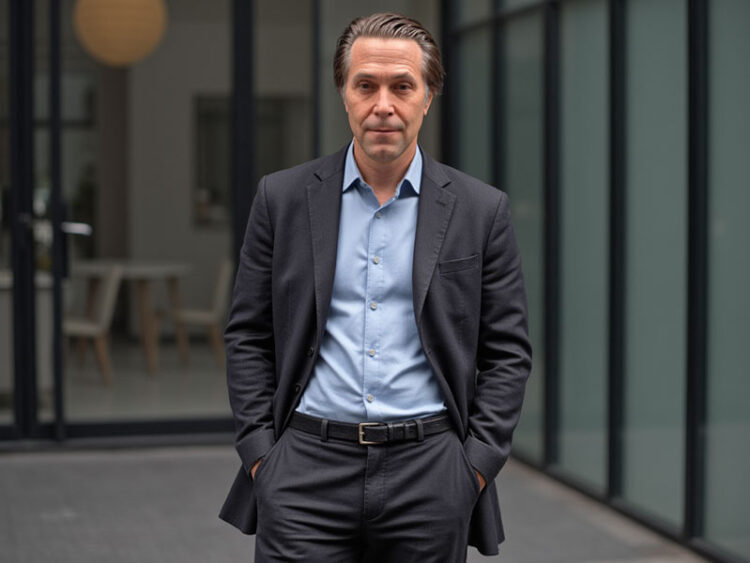Why Tom Vukota’s perspective carries weight
Tom Vukota brings more than 30 years of combined institutional and entrepreneurial experience to the investment industry. Before founding VCM Global Asset Management, he spent over 15 years analyzing alternative assets across venture capital, private equity, real estate, and public markets. In 2008, he launched VCM to focus on segments overlooked by traditional investors, applying secular trend analysis and disciplined allocation. Over the past 15 years, his firm has adjusted strategy across cycles, scaling down exposure to crowded real estate while building conviction in venture capital and disruptive growth themes.
This experience positions Vukota to speak with authority on what sustains credibility in investment management. His view is clear: investor trust depends less on marketing and more on consistent application of principles.
Market outlook on due diligence, risk controls, and innovation
Across global asset management, the same priorities dominate boardrooms. Blackstone emphasizes risk-adjusted returns and rigorous underwriting in every real estate and private equity deal. Bridgewater Associates highlights downside protection and the need to model risks across multiple scenarios. Bain Capital stresses innovation in both strategy and process, from data analytics to new markets.
The convergence of these themes reflects current conditions. Capital continues to flow into alternatives, yet investors are increasingly cautious. Inflationary pressures, shifting interest rates, and geopolitical uncertainty make diligence and risk management central to performance. At the same time, technological disruption and evolving capital markets force firms to adapt. In this environment, the firms that balance discipline with innovation will hold investor confidence.
This is the context in which Vukota’s principles resonate. He distills them into five categories that have guided VCM since inception. Each principle is not theoretical but observable in practice.
Make decisions only with data-backed due diligence
Vukota treats data as the filter through which every opportunity must pass. He calls for a “disciplined investment process built on thorough due diligence backed by data-driven decision making.” This requires stress testing assumptions, modeling scenarios, and confirming that growth themes align with fundamentals.
For example, VCM reduced exposure to real estate as valuations climbed and interest rates created headwinds. That decision was not intuition—it was the result of data showing compressed risk-adjusted returns. Investors read this discipline as proof that the firm does not chase momentum.
Protect capital first through strict risk controls
Risk is unavoidable in alternatives, but unmanaged risk erodes confidence. Vukota builds portfolios with margin of safety as a central rule. He frames it simply: downside protection comes first.
In practice, this means reducing allocations to crowded markets, structuring deals with resilient cash flows, and identifying exposures early. The workforce housing platform in Colorado illustrates this. While designed to capture demographic growth, the assets also produced steady cash flow across cycles. Investors could see the firm balancing growth with protection, a combination that strengthens credibility.
Build an investment culture grounded in integrity
Principles are only as strong as the culture that enforces them. Vukota emphasizes that investment firms must hire and promote based on merit and alignment with values. Integrity isn’t a soft word in this context, but an operating standard.
This culture matters to investors who often worry about conflicts of interest or short-term incentives driving decisions. A governance model built on integrity gives confidence that analysis will not be compromised by personal or political considerations inside the firm.
Align incentives by investing alongside clients
One of the strongest signals of credibility is shared exposure. Vukota insists that managers commit their own capital. VCM invests alongside its clients, ensuring outcomes are directly aligned.
For investors, this alignment reduces skepticism. In alternatives, where capital is locked in for years, knowing the manager’s assets are equally at risk creates measurable accountability. It also sends a message that the firm views risk and return through the same lens as its clients.
Drive performance by innovating without losing discipline
Markets shift constantly. Innovation is not optional for firms that want to remain relevant. For Vukota, innovation means refining analysis, expanding the investment universe, and adapting processes while holding discipline steady.
He points to VCM’s pivot away from real estate into venture capital as an example. This wasn’t a departure from principles—it was an innovation in allocation strategy supported by the same due diligence and risk framework. The decision reflected recognition of secular themes like AI and fintech that would transform industries. Innovation in this sense preserves continuity while extending opportunity.
Why principles outperform promises
What distinguishes Vukota’s approach is the translation of principle into action. Investors have seen decisions to pull back from overheated markets, commitments of personal capital alongside theirs, and disciplined allocations to long-term themes. This transparency builds trust.
For investors, credibility depends less on projections and more on evidence that a manager applies a consistent framework across cycles. Vukota’s five principles offer that consistency. They also align closely with the priorities emphasized by the largest firms in alternatives—discipline in diligence, clarity in risk management, integrity in culture, alignment of interests, and a willingness to innovate.
Conclusion
Tom Vukota defines investment management not through slogans but through principles applied in practice. His focus on data-driven due diligence, strict risk controls, integrity, alignment, and innovation reflects both personal conviction and industry consensus. In a competitive environment where investors evaluate not just returns but credibility, these principles function as the strongest measure of trust.













